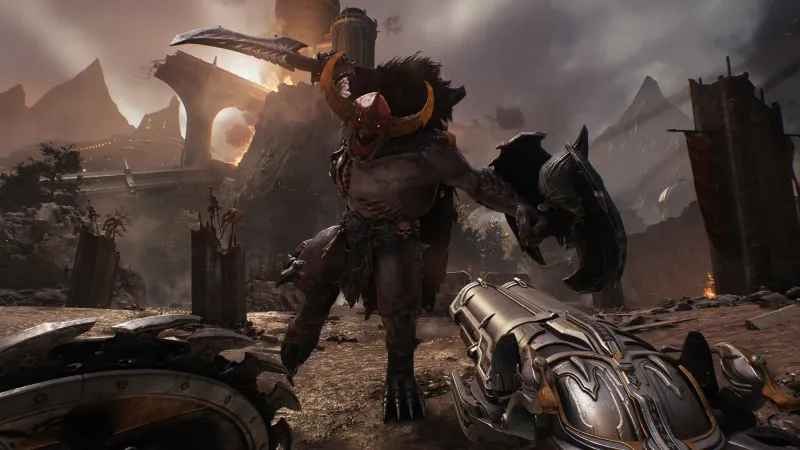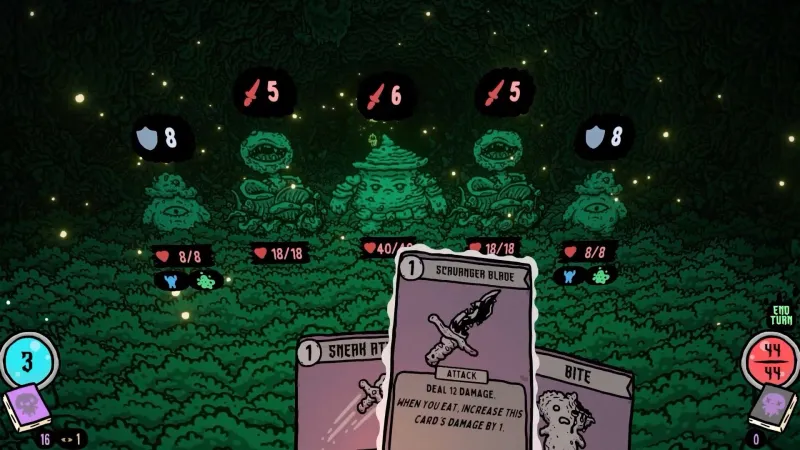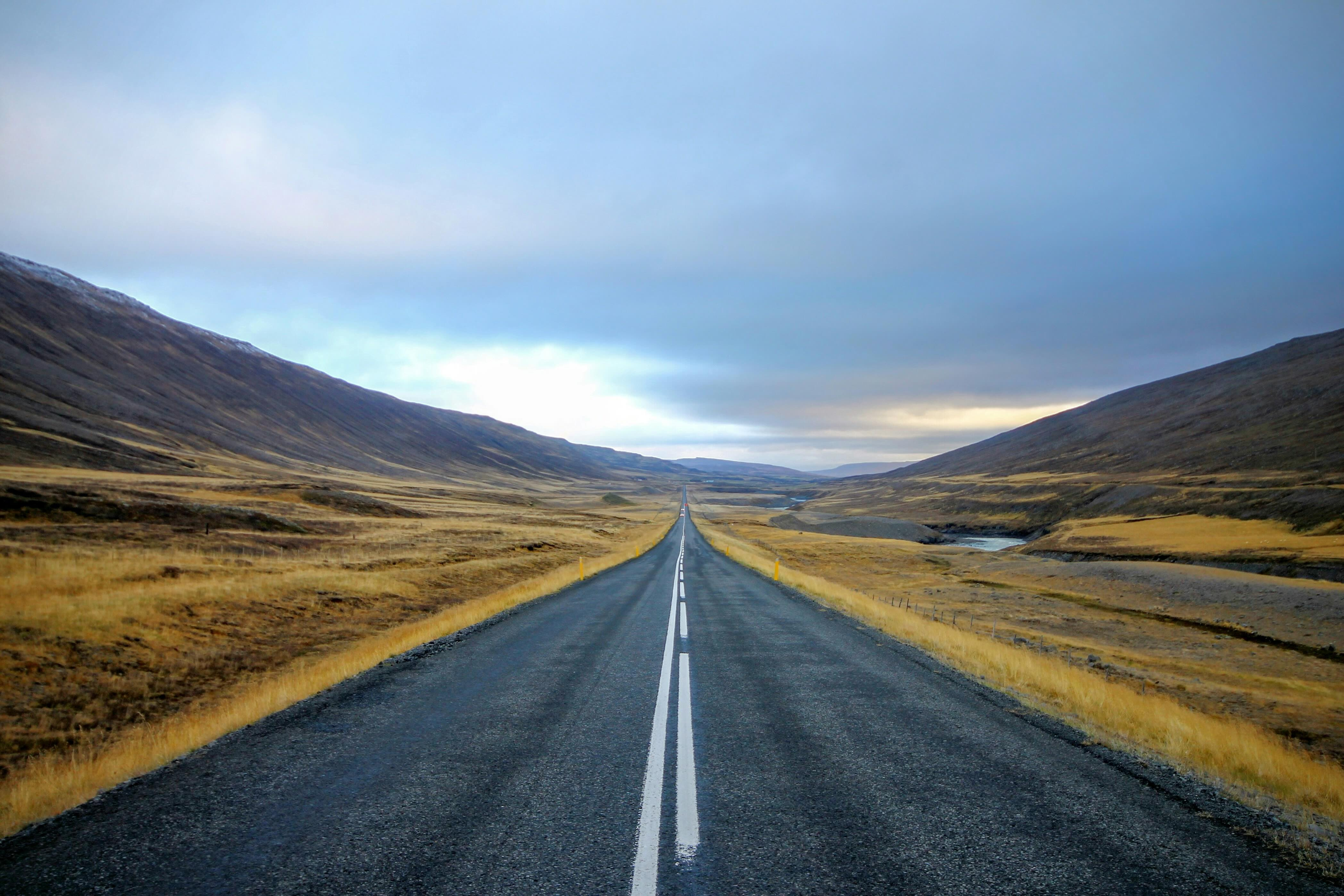The Road to Trump’s Embrace of White South Africans


It was May 2019 and national security officials were in the Situation Room discussing Iran when President Trump abruptly changed the subject. He wanted to talk about granting asylum and citizenship to white South African farmers.
Mr. Trump had floated the idea before, claiming that the farmers were a persecuted minority group being displaced from their land, according to John R. Bolton, his national security adviser at the time, who was at the meeting.
Mr. Bolton said he thought little of Mr. Trump’s wish. The president had embraced fringe ideas and false narratives pushed by white Afrikaner activists, Mr. Bolton said.
“It never amounted to anything, so I just put it as typical Trump,” Mr. Bolton recalled in a recent interview. “Some random person tells him something and he’s obsessed with it.”
Five years later, Mr. Trump’s views on white farmers in South Africa are shaping U.S. foreign policy in his second term. On Monday, the first group of Afrikaners, a white ethnic minority that ruled during apartheid in South Africa, landed in Washington, as the Trump administration upended a refugee system that had provided sanctuary for those fleeing war, famine and natural disasters.
The administration is welcoming white South Africans after suspending the program for everyone else, including other Africans who have waited in refugee camps for years and were vetted and cleared, and Afghans who supported the U.S. war in their country.
The extraordinary development capped months of a diplomatic spiral between the two nations.
In early February, Mr. Trump signed an executive order halting all foreign aid to South Africa, claiming that its government had engaged in “race-based discrimination.”
In March, his administration expelled South Africa’s ambassador after he criticized Mr. Trump for playing to white grievance in America and warned of a “global protective movement that is beginning to envelop embattled white communities.”
A convergence of factors has fueled the administration’s hostile approach to South Africa.
They include meetings with Afrikaner activists, a break between the two countries over Israel’s war in Gaza and Mr. Trump’s focus on eradicating diversity and inclusion programs that the administration alleges have led to racism against white people.
His most influential advisers include hard-right conservatives executing an agenda influenced by white victimhood. The officials who might have rebuffed Mr. Trump’s ideas have been replaced by loyalists, such as Secretary of State Marco Rubio, who are willing to turn his impulses into policy.
And a conversation with the renowned South African golfer Gary Player stayed on Mr. Trump’s mind.
When Mr. Trump raised the issue of white farmers in the Situation Room, Mr. Bolton recalled that the president, while practicing his swing with Mr. Player, had heard that the Afrikaners were being “driven from their land.” Two other former administration officials also said Mr. Trump had heard about the struggle of Afrikaners from Mr. Player.
In February, Mr. Player said he had “not even once” spoken to Mr. Trump about U.S. policies in South Africa.
“I’m a big Trump fan, but I can’t get involved with politics,” Mr. Player said, adding, “Donald Trump’s going to make the decisions about South Africa. That’s going to come from him.”
Asked about Mr. Bolton’s account last month, an adviser to Mr. Player, Dave King, said the golfer did not recall the conversation with Mr. Trump. “He considers all discussions that he has on the golf course as private,” Mr. King said.
White House officials did not respond directly to questions about how Mr. Trump’s views on South African’s plight evolved into U.S. policy. Instead, they reiterated their concerns about the Afrikaners.
“Afrikaner refugees who arrived in the United States today shared their harrowing stories of discrimination and persecution in South Africa, including violent attacks, vandalism of property, death threats, racial slurs against farmers, songs calling for the death of all Afrikaners, affirmative action laws that prevent many from finding work and a government that, at a minimum, did not respond to their requests for help,” Karoline Leavitt, the White House press secretary, said in a statement on Monday. “It’s truly sad The New York Times is attempting to minimize the suffering of this long-persecuted minority group.”
Powerful American Allies
To Mr. Trump, South Africa is a cautionary tale for the United States.
In the 1990s, when one of his advisers mentioned a news item projecting that nonwhite people could become the majority in the United States, Mr. Trump shot back that there would be a revolution should that happen. “This isn’t going to become South Africa,” he said, according to a book about the president, “Confidence Man,” by Maggie Haberman, a New York Times reporter.
Years later, in August 2018, one of Mr. Trump’s favorite newscasters crystallized his views of South Africa. Tucker Carlson, a Fox News host at the time, said that South Africa’s president had begun “seizing land from his own citizens” under a new law that Mr. Carlson called “the definition of racism.”
“Racism is what our elites say they hate most — Donald Trump is a racist they say — but they pay no attention to this at all,” Mr. Carlson said.
Within hours of the newscast, Mr. Trump had fired off a tweet claiming that there was “large-scale killing” of white farmers in South Africa, and that he had directed the State Department to “closely study the South Africa land and farm seizures and expropriations.”
“South African Government is now seizing land from white farmers,” he wrote, tagging the accounts of Fox News and Mr. Carlson.
With that comment, Mr. Trump had weighed in on an issue at the root of tensions in South Africa for generations.
For nearly five decades, South Africa lived under the Afrikaner-led apartheid government, which violently segregated the Black majority, denying them access to quality housing, education and land, and the ability to build generational wealth.
Since the end of apartheid in 1994, the government has made efforts to undo the economic imbalance created by the system, including through a program created to redistribute land to Black South Africans that had been seized by the former colonial and apartheid governments.
But Black South Africans continue to lag behind white South Africans by virtually every economic measure.
President Cyril Ramaphosa this year signed a law enabling the government to take private land without compensation when it is deemed to be in the public interest. Legal experts say that uncompensated seizures are likely to be rare — the government has long purchased land from white farmers. The law also includes a judicial process that gives landowners an opportunity to challenge seizures.
Despite Mr. Trump’s statement, white South Africans still dominate landownership. White-owned farms occupy about half of South Africa’s surface area, even as white people make up just 7 percent of the population.
While gruesome killings of white farmers in South Africa have captured national attention, police statistics show that the farmers are no more vulnerable to violent crime than other people in the nation.
A State Department report on South Africa in the first Trump administration said that “farm killings represented only 0.2 percent of all killings in the country.” Those killings have remained minuscule in the years since.
South Africa’s governing party, the African National Congress, has ruled South Africa since the end of apartheid.
But the party has been plagued by accusations of corruption and political retribution campaigns, and has struggled to provide basic needs for its people. Critics of the government say that it has escaped scrutiny from allies like the United States, where many politicians still have a romanticized view of the country that elected Nelson Mandela.
U.S. officials and Afrikaner activists have pointed to a different South African political party’s rallying cry of “Kill the Boer!” as evidence that white South Africans are being targeted. Boer means farmer in Dutch and Afrikaans. The African National Congress distanced itself from the chant years ago.
After lobbying for decades to gain allies in Washington, the Afrikaners finally found the most powerful one in Mr. Trump.
Ernst Roets, a prominent Afrikaner activist who has been featured on Mr. Carlson’s show, said activists have long wanted U.S. leaders to put more pressure on South Africa.
“South Africa is changing,” he said, “and the American administration has taken note of this.”
Divisions Erupt, and the Ambassador Is Expelled
Mr. Trump wasted no time resurrecting the Afrikaner issue when he returned to office this year.
And he was no longer surrounded by officials willing to limit his fringe ideas to social media.
Elon Musk, the South African-born billionaire who has become a ubiquitous presence in Mr. Trump’s second term, has made baseless claims on social media about a “genocide of white people in South Africa.”
Just weeks after Mr. Trump was inaugurated, Mr. Rubio announced that he would skip a Group of 20 foreign ministers meeting in South Africa. He accused the South African government of using the occasion to promote “solidarity, equality and sustainability,” the official theme of this year’s G20. “In other words: D.E.I. and climate change,” he said.
Mr. Rubio and other Trump aides were particularly incensed that South Africa had brought a genocide case against Israel at the International Court of Justice. They consider the South African government a leader in rallying global outrage against Israel.
In late February, Trump administration officials met with Afrikaner activists in Washington, who outlined their concerns. The officials asked about the murder rate of white farmers, racial quotas and laws that have been passed to address racial inequities.
“They link it in a sense to their whole D.E.I. issue in America,” said Jaco Kleynhans, who leads international engagement for the Solidarity Movement, an Afrikaner rights organization that met with the White House officials earlier this year. “They said there must only be merit.”
And while Mr. Trump’s aides privately inquired about South Africa’s handling of race, some of them raged over the South African ambassador’s criticism of Mr. Trump’s approach to race.
The ambassador, Ebrahim Rasool, was quoted in a Breitbart article as saying that Mr. Trump was leading a “supremacist” movement against “incumbency, those who are in power” in South Africa.
After reading the article in March, Mr. Rubio announced the expulsion of Mr. Rasool, calling him a “race-baiting politician who hates America and hates” Mr. Trump.
Meeting at the White House
Mr. Trump’s executive order shocked even Afrikaner activists.
Days earlier, in a post on X, Mr. Ramaphosa defended the recently adopted Expropriation Act, writing that it was “not a confiscation instrument, but a constitutionally mandated legal process.” He said he looked forward to explaining the difference to the Trump administration.
“Why do you have openly racist ownership laws?” Mr. Musk wrote in response, reposting Mr. Ramaphosa’s message on his own account.
Four days after Mr. Musk’s response, Mr. Trump issued an executive order halting aid to South Africa. He said his administration would prioritize the resettling of “Afrikaner refugees” into the United States because of policies that he said had “racially disfavored landowners.”
Mr. Kleynhans, the Afrikaner rights group activist, said that after the order was issued, many of his organization’s members were concerned that things could get worse for them at home. He and other leaders in the Afrikaner movement decided to lobby the Trump administration to provide support for Afrikaners who wanted to remain in South Africa.
He declined to say who from the White House met with the delegation. But a congressional official said the meeting included Brendan McNamara, the director of African affairs for the National Security Council, and Dan Dunham, a staff member in the council’s Africa group. The delegation also met with senior State Department officials.
The South Africans told the American officials that while they appreciated the Trump administration’s acknowledgment of the Afrikaners, they most wanted help fixing South Africa so that Afrikaners could continue living there, Mr. Kleynhans said.
But according to Mr. Kleynhans, it was clear that the White House officials believed that the Afrikaners, the descendants of European colonialists, would be better off in the United States.
Several people brought up the fact that many Afrikaners were already working on farms in America. Some mentioned businesspeople they knew who were Afrikaner. White House officials seemed to believe that Afrikaners could quickly contribute to America’s economy, he said.
Christopher Landau, the deputy secretary of state, made the administration’s cultural affinity for Afrikaners clear on Monday when he was asked why the South Africans were welcomed over other refugees, including Afghan allies.
“Some of the criteria are making sure that refugees did not pose any challenge to our national security,” Mr. Landau said after meeting with the newly arrived white South Africans at Washington Dulles International Airport. “And that they could be assimilated easily into our country.”
The same day, Mr. Trump repeated his debunked claim that “it’s a genocide that’s taking place.”
“It’s a terrible thing that’s taking place and the farmers are being killed,” he said.
Mr. Trump added: “They happen to be white.”
What's Your Reaction?
 Like
0
Like
0
 Dislike
0
Dislike
0
 Love
0
Love
0
 Funny
0
Funny
0
 Angry
0
Angry
0
 Sad
0
Sad
0
 Wow
0
Wow
0





































